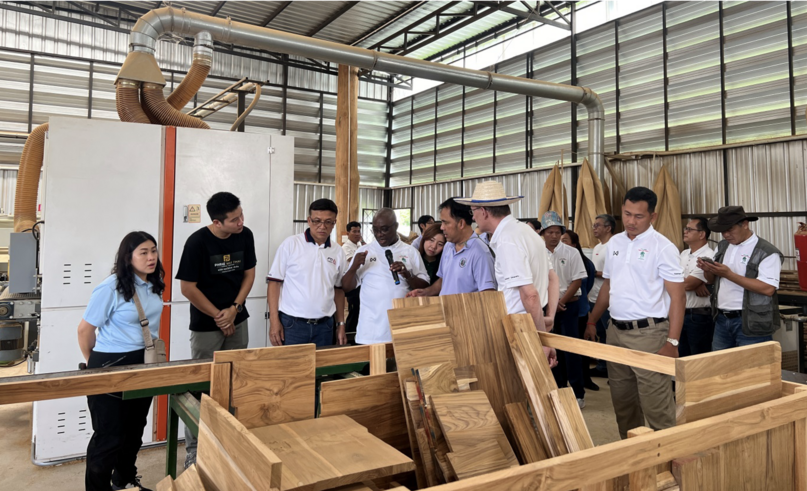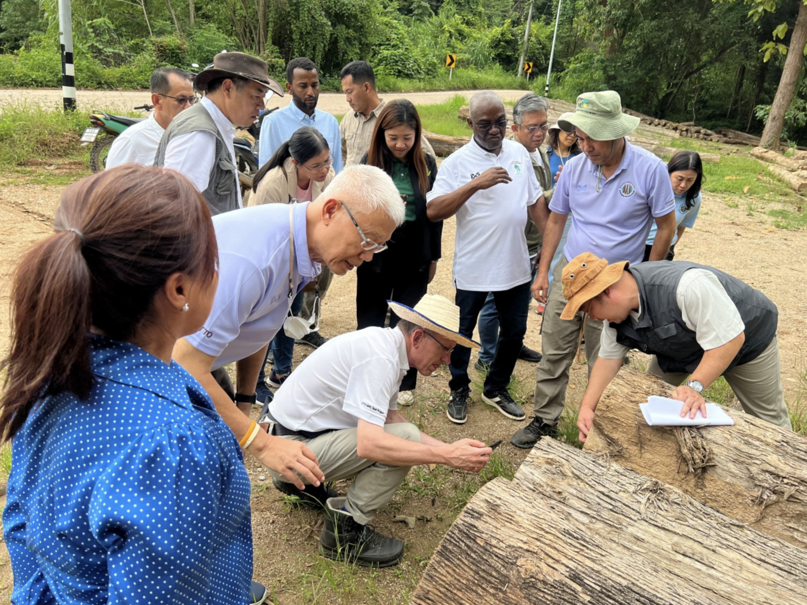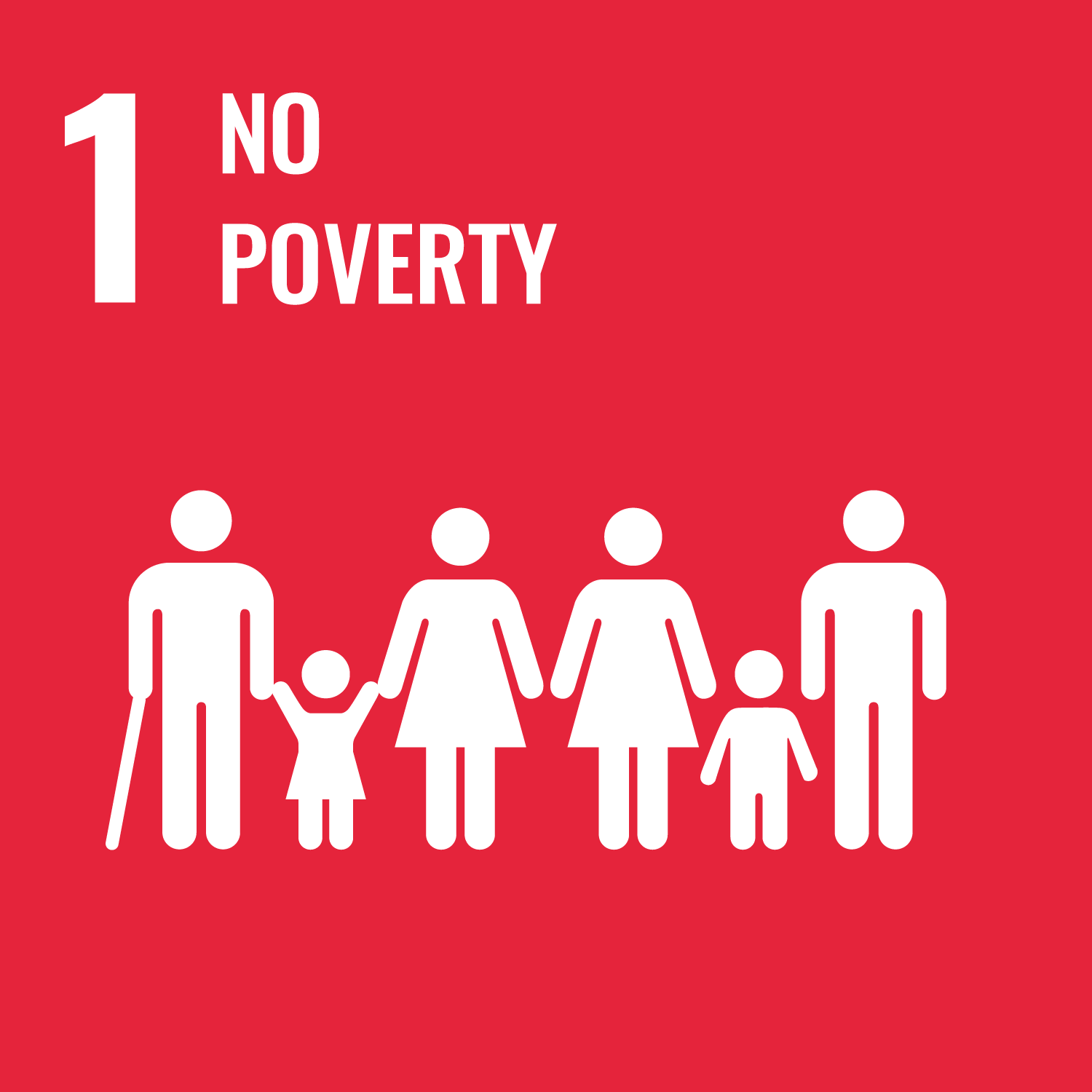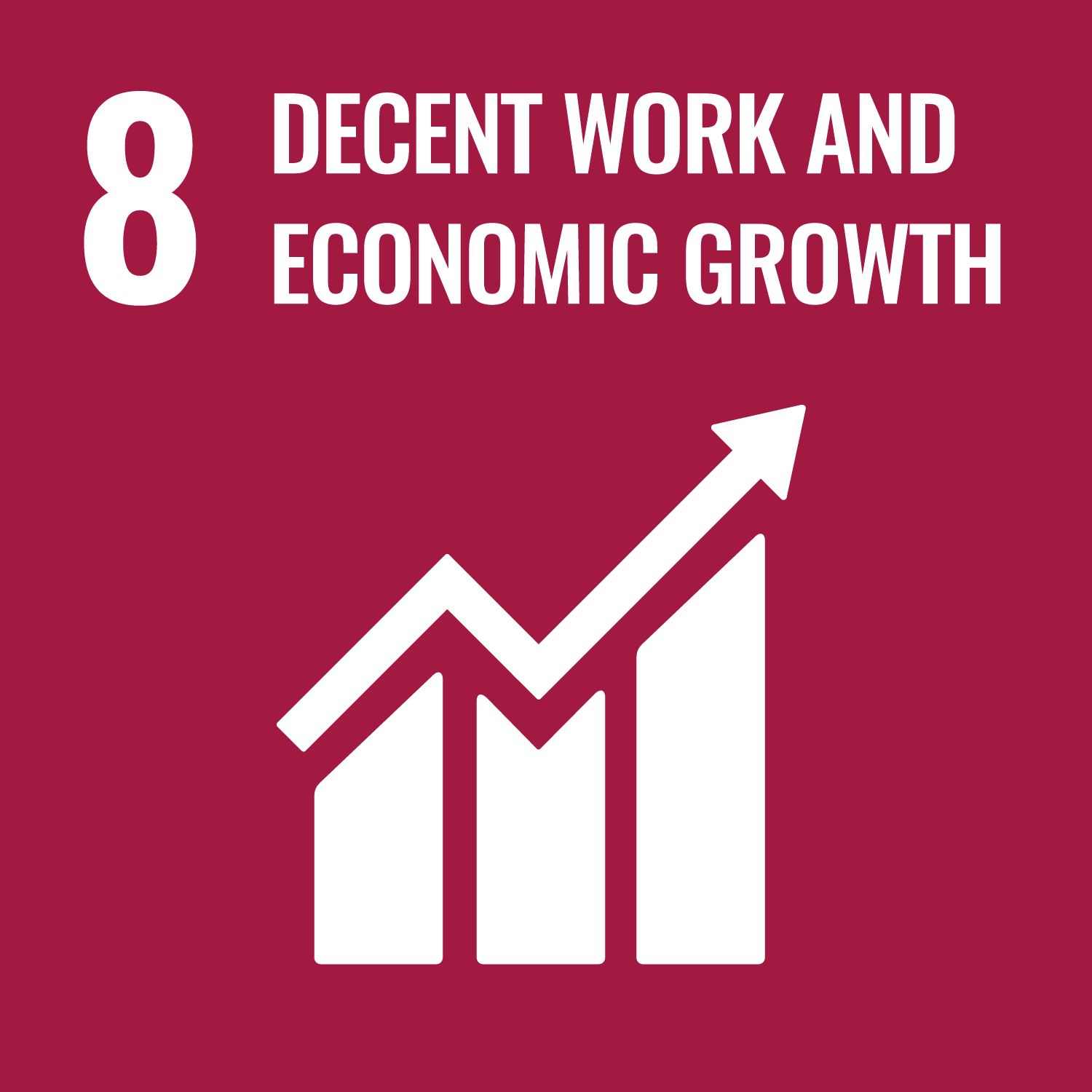Smallholders need more support to grow high-quality teak—ITTO project to lead the way
8 October 2024

ITTO Director of Trade and Industry, Dr Nurudeen Iddrissu (with microphone), interacts with teakwood manufacturers in Phrae Province, Thailand, during the workshop field trip. Photo: P.K. Thulasidas

Participants in a teak log yard in Lampang Province, Thailand. Photo: Yongyut Trisurat
8 October 2024: Participants in a regional workshop held in Thailand last month as part of an ITTO project advocated the provision of viable financial schemes to smallholders to support their efforts to cultivate teak and other economically useful tree species and sustainably produce high-quality timber on long rotations. The workshop also discussed how the ITTO project will assist in this endeavour.
The workshop, “Enhancing smallholder plantations towards quality timber production of teak and other economic species and carbon neutrality in the tropics”, was convened in conjunction with a steering committee meeting on ITTO project PP-A/54-331A. This project, entering a second phase, initially focused on teak-growing in the Mekong Subregion, but the second phase will be implemented in six countries both within and beyond the Mekong—Cambodia, India, Indonesia, Thailand and Viet Nam in the Asia-Pacific region and Togo in West Africa. Both phases are funded by the Government of Germany through its Federal Ministry of Food and Agriculture (BMEL). Currently, four countries have initiated the project, while India and Indonesia are in the preparation of implementation.
“It is the right time to target marginalized smallholders in phase two to improve the timber quality of teak and other valuable species production systems,” said ITTO’s Director of Trade and Industry Division, Dr Nurudeen Iddrissu.
“The development of management models for smallholder value chains in plantations of teak and other economic species and providing supportive financial mechanisms will encourage smallholders to plan the sustainable management of their plantations,” he said.
“It will also ensure they produce higher-quality timber on longer rotations that, combined with the use of efficient timber-processing technologies, will better enable the production of value-added timber products for both domestic and export markets.”
Also speaking at the workshop, Stephen Wagner, representing BMEL, said phase two of the project will address pending issues facing smallholders, such as access to optimized financial mechanisms to promote longer rotations, value-adding and improved silvicultural practices, timber processing and legality throughout supply chains.
Bannarak Sermthong, Deputy Director General of Thailand’s Royal Forest Department, highlighted recent initiatives to increase forest cover in Thailand, noting that an amendment to Article 19 of the Forestry Act 2019 changed the status of teak to “economic species” and now allows farmers to cultivate teak and harvest it with the permission of the Forestry Department. This change is encouraging smallholders to invest in plantations, but more efforts are needed to increase the productivity and quality of the timber they produce.
The workshop included a field visit to Nan, Phrae and Lampang provinces to give participants additional insights into the challenges faced by smallholder teak-growers.
Photos of the workshop are available here
Presentations are linked below.
A full summary of the workshop is available here.
Read the latest edition of the Teak Mekong newsletter supported by the ITTO “Promoting quality timber production in smallholders and community-based teak and other valuable species plantations in the tropics”.



